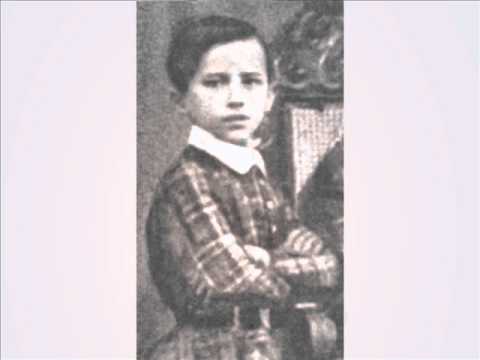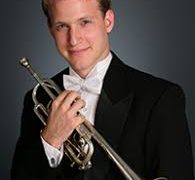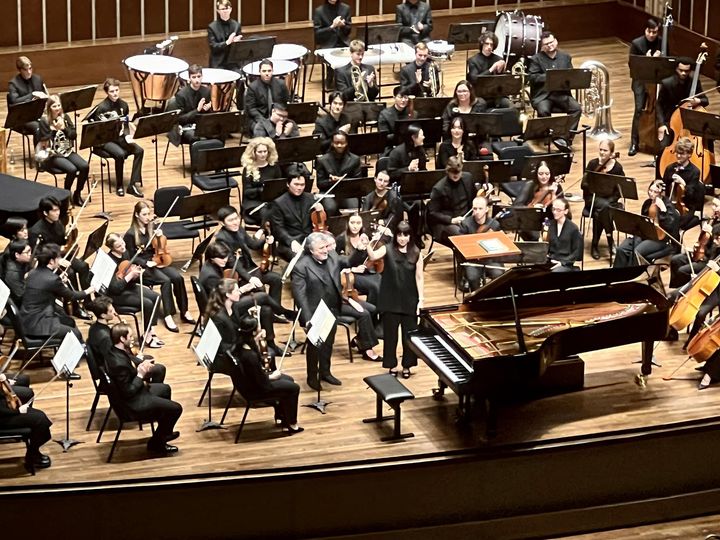Tchaikovsky had a caregiver, right?
mainThe latest musical anachronism pops up in an otherwise impressive TLS article by Simon Morrison, in which he argues that Tchaikovsky was a modernist and progressive.
But I had trouble getting over the first sentence: ‘Pyotr Ilyich Tchaikovsky was a delicate boy, a “child of glass”, whose caregiver once found him weeping in bed, because the music in his mind would not grant him peace.’
A caregiver? He had a nanny, a woman of the lower classes who fulfilled a time-honoured function in a bourgeois household.
In the 21st century, however, it would be offensive and classist to refer to someone as a nanny. So a euphemism is found – either by Morrison or by one of his editors. And it jars so badly you hardly want to read on.






Your comment got me to read the article. Perhaps that was your intention. If so, thank you, but you really should get out more.
Nanny is still very much a current (and correct) term, at least in America. Nannies call themselves nannies all the time.
It’s stay-at-home moms who hire nannies who feel embarrassed and inadequate about hiring a nanny (and well they should) who shy away from calling the person most dear to their children nanny.
Now nanny is itself a euphemism for indentured servant…
Let’s just call them “my nondigital PDA”, Personal Daycare Assistant.
So, Tchaikovsky had a nondigital PDA, how interesting, I think I hear his affection for her in his Fifth Symphony…
“Now nanny is itself a euphemism for indentured servant…”
An indentured servant is one who has promised (or been sentenced) to work for their employer for a fixed length of time or until a debt has been paid off. They cannot leave until this is completed. Nannies may have limited opportunities to leave their jobs (low wages, limited skill set, few opportunities perhaps), but they can leave if they want to.
An instance of political correctness that I am sure most readers would have missed if you did not mention it.
Well, I persevered and read the whole article , which is immensely wordy and gives an impression that the writer has enormous self-regard , but is nonetheless quite interesting. However, I agree with you that the opening is precious in the extreme, and where on earth did the phrase ” child of glass” come from ?
Typical of Tchaikovsky is his musical classicism, infused with the romanticism of his age. That symbolists thought him a likeminded artist, is due to their ignorance of the music which really explored new materials: Mussorgsky, Rimsky-Korsakoff, etc. Of course, ‘progressiveness’ in terms of musical language is not an artistic or musical category. The most ‘progressive’ of all times was John Cage, who did not even compose.
Ridiculous political correctness
Since when is ‘nanny’ a derogative? News to me.
The “nanny state” – in its compound forms it’s quite derogative.
He also had a life coach, Nikolai Rubinstein.
“In the 21st century, however, it would be offensive and classist to refer to someone as a nanny.”
You jump to conclusions.
Maybe the writer merely thought that today’s readers wouldn’t understand what a nanny was. Not all of today’s readers are as old as you are.
Morrison does not argue that Tchaikovsky was “a modernist and progressive”. In the last paragraph, where we finally get to the point, he states that Tchaikovksy embraced Symbolism and Surrealism in order to counter them or to put his mark on them. That is a very different thing. However, I find nothing in what precedes that paragraph to support the argument. Given its provenance, it’s a surprisingly meandering piece. I agree re ‘caregiver’, but that’s not the biggest problem.
“Nanny” widely used here in the US, by both nannies and their employers.
But there are many other words for the job… “au pair”, “governess”, “daycare giver”… “nurse” or “wet nurse” would have been common in Tchaikovsky’s time (in English)… so it’s not clear that the writer was avoiding “nanny”.
Perhaps the writer just wanted a term that would be understood by all readers including internationals who may have never encountered the peculiar word “nanny”.
Anyone know what the original Russian word in that reminiscence was? Was it actually the Russian equivalent of “nanny”?.
The original Russian word would have been ‘nyanya’, a very central figure in every household with at least modest means in pre-revolutionary Russia. More often than not she was treated as part of the family, something like a surrogate grandmother.
The word is Nyanya
As far as I know people still refer to nannies, don’t they?
In UK anyway – maybe not in US.
I agree it sounds odd referring to Tchaikovsky.
People still say “nanny” in the US. (See “anon”‘s comment from earlier)
“Delicate” is snowflaking over the word “caregiver”.
…throw up from the excessive PC of it.
I’ve never once heard somebody refer to the word nanny as “offensive.”
Agreed! And, anyway, isn’t “carer” the British epithet? All fine composers work with tradition and seek their own form of expression within that; it doesn’t make them progressive, per se. A “progressive” composer would not bother with tradition at all, producing music that makes one want to progress right out of the concert hall. Life is too short.
What kills me is that, having reached the age of 60, I realize I may never get the chance to hear all of the music composed by Carl Philipp Emanuel Bach. Or Carl Davis, for that matter. Carl Nielsen, you can have. Any composer who never uses harp has no real ear for music.
My wife was a nanny in London when we met, commenters be careful what you say. Anyone want to guess what a trained and experienced nanny in London is paid today?
Depending on who they are looking after, £50,000-100,000 p.a.
Tchaikovsky also did not have a “nanny”. Alexandra Andreyevna was his GOVERNESS. Her main function was, in other words, to tutor him. Much ado about little, compounded by an error in the post. We are quite deeply into the ‘Post-research’ period, it has come to seem to me. Commenting on posts here and elsewhere sometimes seems as if I’ve gone back in time to my days as a research assistant in the course of doing my doctorate 45 or so years ago. Please — less haste, more research. It’s not so difficult.
People always accuse me of being anachronistic when I talk about my duenna, who accompanies me everywhere.
There are many in the US who want their nannies to be college graduates